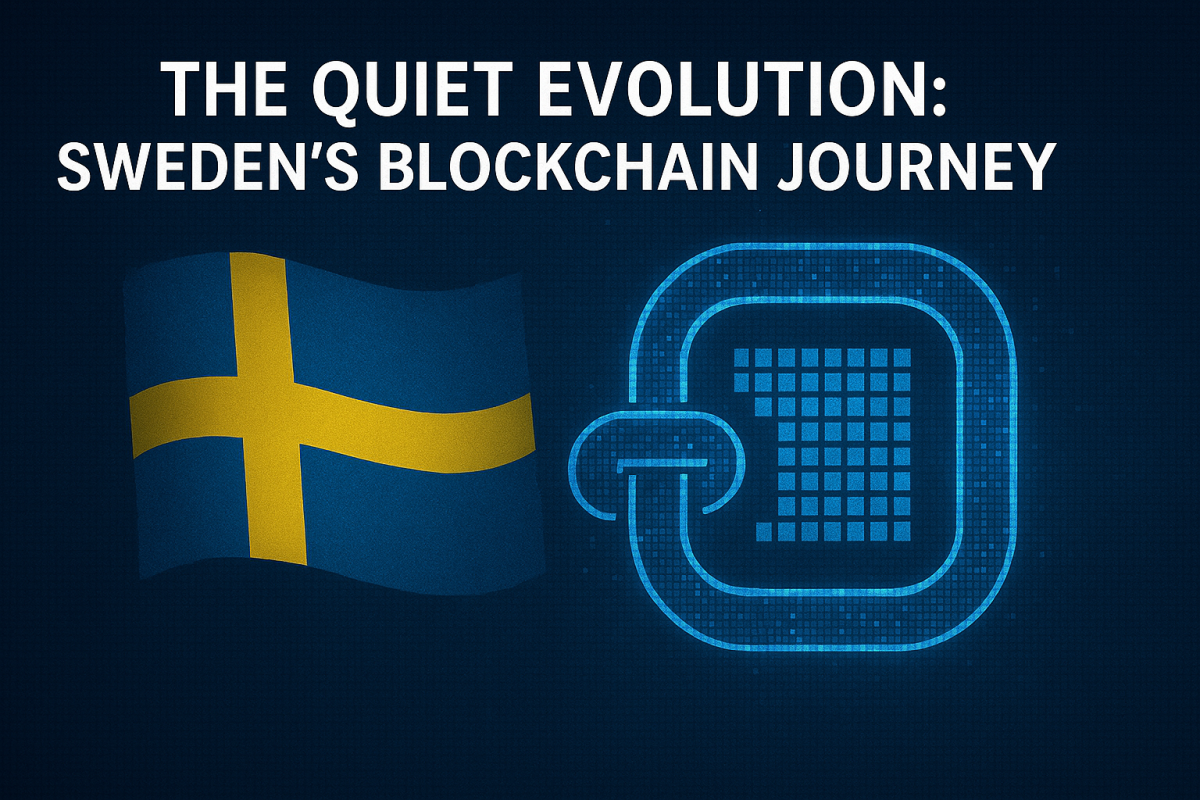The Quiet Evolution: Sweden's Blockchain Journey
It's hard to ignore the fact that Sweden, a nation celebrated for its technological prowess, seems to be lagging behind its Nordic neighbors in embracing this digital frontier. While the country is making strides, it's evident that Sweden is not leading the charge in the crypto revolution. Instead, it appears to be cautiously navigating the space, while other Nordic nations forge ahead with greater momentum.
I would say that the industry is moving, but slowly. The upcoming Nordic Blockchain Conference 2025 in Stockholm is a clear sign of a growing interest in the sector. The event promises to bring together industry leaders, policymakers, and enthusiasts to discuss the future of decentralized finance, Web3, and beyond.
Yet, such initiatives, while commendable, are still few and far between. Sweden needs more platforms and events to truly catalyze growth in this space. Being the founder of Cryptobeyer, I see a clear need for a Web3-friendly conversation that embraces the possibilities of emerging technologies across all sectors, not just the financial sector.
In order for Sweden to experience the positive aspects of the fourth industrial revolution, we need human-centric initiatives such as community engagement and education.
A few passionate individuals (and organizations) in Stockholm, Uppsala, and Gothenburg hold meetups focusing on Bitcoin. These gatherings are crucial for fostering a sense of community and sharing knowledge. However, compared to the vibrant crypto scenes in countries like Norway and Finland, Sweden's efforts seem somewhat subdued. It is also a worrying sign that the strong focus on Bitcoin excludes the possibilities of other cryptocurrencies and technologies in the field.
"Sweden needs to open up the full opportunities of Web3 technology."
The regulatory environment in Sweden is another factor that cannot be overlooked. The implementation of the EU's Markets in Crypto-Assets Regulation (MiCAR) has brought a comprehensive framework for crypto-asset service providers. While the intention behind these regulations—to enhance transparency and consumer protection—is noble, there is a growing concern that they may inadvertently hinder innovation. The Swedish Financial Supervisory Authority's (SFSA) stringent approach could be perceived as overly cautious, potentially stifling the very progress it aims to safeguard.
"It’s an evolution in Sweden, not a revolution."
I have to say, organizations like Blockchain Sweden are doing commendable work in advocating for blockchain technology and engaging with policymakers to improve the regulatory landscape. I would say that these efforts also highlight the need for more proactive measures to position Sweden as a true hub for blockchain innovation.
Recent statistics from the 2025 Crypto Adoption Report by K33, Nordic Blockchain Association, and Kaupr reveal a modest increase in cryptocurrency adoption among Swedes. In 2024, approximately 6.7% of the population owned Bitcoin and other cryptocurrencies, rising marginally to 7.4% in 2025. While this indicates some growth, the increase is negligible, suggesting that significant barriers to widespread adoption remain. In comparison to the other Nordic nations, Sweden is falling behind. Norway boasts the highest crypto ownership rate in the region at 12.3%, while Finland has seen remarkable growth in ownership, jumping from 6.8% to 11%.
The demographics of crypto ownership further illustrate this point. While younger adults are increasingly adopting cryptocurrencies, the trend is not as pronounced in Sweden as it is elsewhere. Moreover, the gender gap in crypto ownership persists, with men significantly outpacing women. Norway, for instance, leads in female adoption at 7.3%, a figure that Sweden could aspire to match.
But I am optimistic, looking ahead, with 28% of Nordic respondents believing they will buy crypto within the next decade. Finland, in particular, stands out as the most bullish, with 41% expressing confidence in future crypto ownership. Sweden, while optimistic, has some catching up to do.
While the initiatives in Sweden's blockchain space are a sign of the country's innovative spirit, progress alone is not enough. To truly compete with its Nordic neighbors, Sweden must accelerate its efforts. By adopting a human-centric approach, recognizing the full value of Web3 technology, nurturing a more dynamic community, advocating for proactive regulatory measures, and embracing a bolder stance on innovation, Sweden has potential to catch up in the progress of the fourth industrial revolution.






